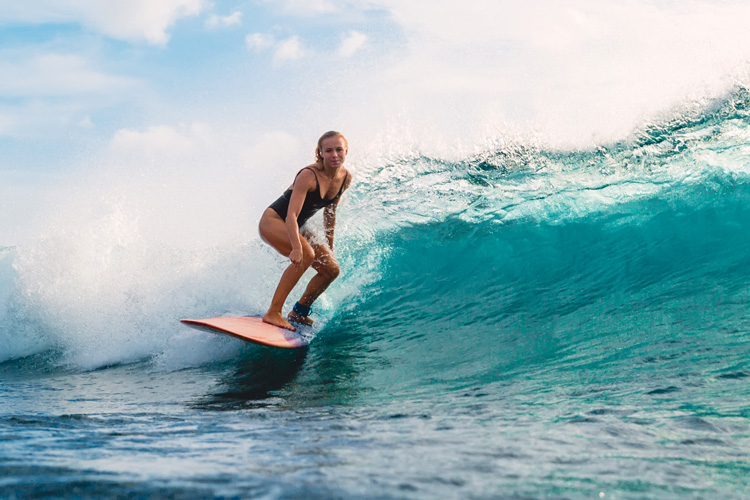Surfing is an exhilarating sport that combines physical fitness, balance, and a deep connection with the ocean. Whether you’re a beginner or an experienced surfer, here are some tips to help you improve your surfing skills and have a great time in the water:
- Take a Lesson: If you’re new to surfing, consider taking lessons from a certified instructor. They can teach you the fundamentals, safety guidelines, and help you progress faster.
- Choose the Right Equipment: Make sure you have the appropriate surfboard for your skill level and the conditions you’ll be surfing in. Beginners typically start with longboards, while more advanced surfers may prefer shortboards or other specialized boards.
- Practice Paddling: A strong paddling technique is crucial for getting out to the waves and catching them. Work on your upper body strength and paddle consistently to improve your endurance.
- Learn About Wave Types: Understanding different types of waves and how they break can help you position yourself better in the lineup and catch more waves. Study the ocean and its patterns to predict when and where the best waves will come.
- Practice Pop-Ups: The pop-up is the motion of going from lying on your board to standing on it. It should be fluid and quick. Practice your pop-ups on the beach or in flat water until it becomes second nature.
- Timing is Key: Timing is everything in surfing. Watch the waves, gauge their speed, and paddle to catch them at the right moment. Patience is also crucial; don’t rush into waves if you’re not properly positioned.
- Position Yourself Correctly: Get in the lineup and position yourself where the waves are breaking. Avoid being too far out or too close to the shore. Pay attention to other surfers to understand where the best take-off spot is.
- Keep Your Eyes Open: Always keep an eye on the horizon for approaching waves, as well as other surfers around you. Being aware of your surroundings is essential for safety and catching waves.
- Balance and Stance: Maintain a low center of gravity and a balanced stance on your board. Keep your weight centered and use your arms for balance when needed. Your feet should be shoulder-width apart.
- Fall Safely: Falling is part of surfing. When you do fall, try to fall flat, away from your board, to avoid injury. Always be aware of your board and other surfers to prevent collisions.
- Respect Surf Etiquette: Follow surf etiquette, which includes waiting your turn, not dropping in on others’ waves, and being respectful to fellow surfers. Respect the beach environment as well by cleaning up after yourself.
- Stay Fit and Flexible: Regular exercise, especially core and leg strength training, can help improve your surfing. Yoga and stretching can also enhance flexibility and balance.
- Learn from Others: Watch experienced surfers, ask for advice, and learn from their techniques and mistakes. Surfing is a community, and most surfers are happy to share knowledge with newcomers.
- Have Fun and Be Patient: Surfing can be challenging, and progress may be slow at times. Stay patient and enjoy the process. The joy of riding a wave is worth the effort.
Remember that surfing is not just a sport; it’s a lifestyle and a deep connection with the ocean. Be respectful of the environment and other surfers while enjoying the thrill of riding the waves.







